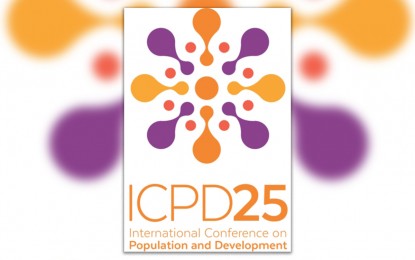
TACLOBAN CITY -- The Commission on Population and Development (PopCom) reiterated its call to stakeholders to help the country realize its commitments to the International Conference on Population and Development (ICPD), which was adopted by 179 governments 25 years ago.
In a forum in this city Monday, PopCom Deputy Executive Director Lolito Tacardon said the campaign to raise awareness on ICPD commitments continue to strengthen the country’s population and development program and Reproductive Health Law implementation.
“We’ve been conducting forums in different regions to take stocks of gains and challenges of the ICPD. We have to raise public awareness on these commitments so we can engage partners to support the program,” Tacardon told reporters.
PopCom has identified eight focus areas for stronger fulfillment of ICPD commitments in the future.
First on the list is the full implementation of the Responsible Parenthood and Reproductive Health Law enacted in 2012. The law guarantees universal access to methods of contraception, fertility control, sexual education, and maternal care.
As an integral part of addressing socio-economic development, another priority is to address the sexual and reproductive health needs of women and men.
Teenage pregnancy is one of the issues that need more attention to keep ICPD commitments. This can be reduced, through promotion of comprehensive sexuality education and access to sexual and reproductive health services.
PopCom also sees the need to empower adults, including parents and teachers to be young people’s partners in their growth and development.
By building capacities of adolescents to improve their socio-economic conditions, authorities believe that they will become more productive human resource and wise parents in the future.
PopCom also emphasizes the setting up an improved database on the characteristics and needs of adolescents and young people to effectively guide the development of interventions for them.
Integrating population factors in national and sectoral development planning and programming is being eyed to facilitate socio-economic development, in environmental management programming especially in the context of climate change.
PopCom also rallies for the pursuit demographic dividends in view of the changing age structure of the country. Demographic dividend refers to the growth in an economy that is the result of a change in the age structure of a country’s population.
The 1994 ICPD articulated a bold new vision about the relationships between population, development and individual well-being.
At the ICPD in Cairo, 179 countries adopted a forward-looking program of action that continues to serve as a comprehensive guide to people-centered development progress. (PNA)
